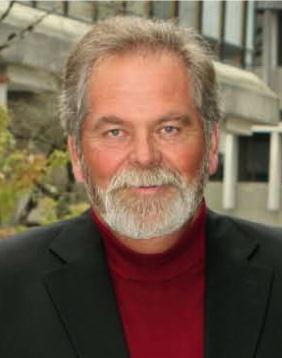Community safety and crime prevention are among the areas on which the BC Liberals say they’re seeking feedback as they draft their new 10-year policing plan, but at least one criminologist questions how much consultation will actually take place.
Robert Gordon, director of Simon Fraser University’s school of criminology, says he’s skeptical about the way the planning process is being conducted. “I don’t know anybody outside my immediate academic circle who’s heard of this initiative,” he told Xtra May 11. He’s not convinced the process will produce much more than “a government-controlled consultation.”
No one from the Ministry of Justice, which is running the consultation, replied to Xtra‘s requests for comment by press time.
An April 25 Victoria Times Colonist report on the first roundtable, held in BC’s capital, noted that the meeting’s venue and time were not published — nor was the newspaper’s reporter permitted to cover the discussion. According to the Colonist, media were told they were not allowed into the session, to allow participants to “speak freely about their ideas for policing reforms.”
“It’s their meetings. They decide how and what format it should take,” says BC Association of Chiefs of Police president Peter Lepine, referring to the government. “All I would look for is that there is an opportunity where people can speak freely and have sufficient time to offer their opinion. Whether that includes the media or excludes the media, includes the police or excludes the police — I think the bottom-line principle, from my personal perspective, is that the environment needs to be such where people can actually provide the input.”
Gordon would prefer to see an independent panel review the province’s policing and its findings reported back to the legislature. “That’s not going to happen,” he quickly adds. He says there’s been no effort to present the public with accurate information about what the policing system costs, what the deficiencies are in the system or what alternatives exist.
“Anybody attending this meeting that wants to offer suggestions to the minister ought to make those exact suggestions,” Lepine says. “There are various opinions that are out there on what a model would look like.”
“It’s a provincial project, and we’re there from a support perspective,” Lepine clarifies. The minister asked the Association of Chiefs of Police for a comment when the consultation was announced, so the association stated its support “around the process itself — and that’s the extent that the police agencies or the BC Association of Chiefs of Police have been involved. We haven’t made any presentations at it,” Lepine says.
“We haven’t been asked by the government to participate in the process,” he adds.
If the government is seeking feedback on policing across the province, gay advocates see an opportunity to discuss better protection for our community and more responsive police forces.
“What I’d love to see is a dialogue with the RCMP on LGBT issues,” says Little Sister’s co-owner Jim Deva. “They’ve been absolutely impenetrable. They avoid it like a plague. If they’re actually starting to dialogue with the RCMP, it’s brilliant.”
Lepine believes the gay community is actively engaged in discussions on operational matters as well as recruitment in the RCMP. “People are actively hired and sought out, actually,” he says.
Deva says he’d like to see the queer community “actually sitting down with people in authority in the RCMP that are capable of making decisions and talking about the issues.”
While a key item is hate crime legislation and how officers apply it, Deva says it’s more than that. It’s about engaging the full range of the community’s diversity, he adds. And that means talking about BDSM and transgender people and the problems they encounter when dealing with police, he points out. “That’s not something you can sit down in two hours and explain.”
Citing the gay community’s relations with the Vancouver Police Department as an example, Deva says it takes years of dialogue to build trust on both sides.
Qmunity’s new executive director, Dara Parker, says she’d also like the queer community to have a seat at the 10-year policing planning table. “Our priority is, as always, increasing queer competency within policing,” she says. “We would want to bring those same competencies to a provincial scope.”
Deva wants to know who is sitting at the table during the BC government’s consultations.
“Is it somebody from the public affairs department of the RCMP, or is it somebody in a position of authority that it will actually make a difference?” he asks. “It has to be at commander level. It can’t be seen as a public relations ploy; then it’s a very negative thing.”
The Ministry of Justice press release states that roundtables are scheduled for Nanaimo, Vancouver, Surrey, Cranbrook, Prince George, Prince Rupert and Kelowna. A Ministry of Justice spokesperson says the only Vancouver consultation session is scheduled for May 22, but the venue has yet to be finalized.
The province says it will release its new plan this fall.


 Why you can trust Xtra
Why you can trust Xtra


